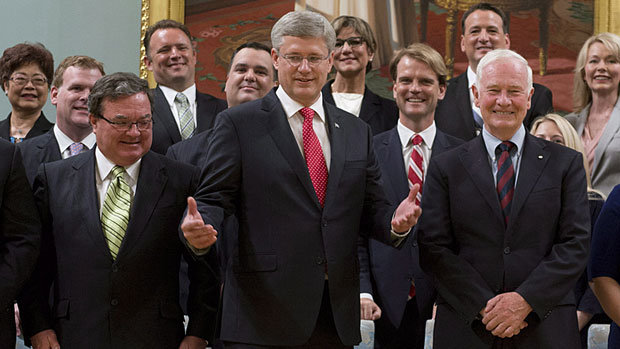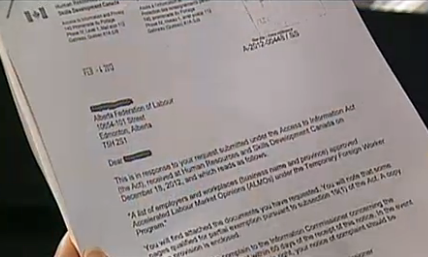
Harper’s new cabinet brings request for updated blacklist
It is clear the stunt orchestrated by Prime Minister Stephen Harper to save the face of his government was a flop. Not only is the new team riddled in controversy and incompetence, a July 4 email suggests the team isn’t a change. Same old, different day, different faces, a bid to save the face of the Conservative government now finds itself in damage control.
An email released on July 4 by Erica Furtado, an executive assistant with issues management in the Prime Minister’s Office, with the subject header: “Transition Binder Check List,” featured a checklist of 10 prerequisites.
http://politicalscene.ca/wp-content/uploads/2013/07/transition-binder-email1-1.pdf
Ministerial staff, who aren’t supposed to do partisan work, were asked to build a black list of bureaucrats and stakeholders who don’t fit the government narrative.
“Who to avoid: bureaucrats that can’t take no (or yes) for an answer” and “Who to engage or avoid: friend and enemy stakeholders” are on the list and while now out in the open, feel familiar as actions we’ve seen from the government in the past.
The person who leaked the emails said people who balked at the idea were cut from further communications on the matter.
The “enemies list” would include environmental groups, non-profit organizations, and civic and industry associations which oppose the government’s views.
The PMO offered no comment on the leak.
“While we don’t comment on internal communications, we are collaborating with our ministers, especially new ministers, to ensure they are fully briefed so they can continue their work on behalf of Canadian taxpayers,” said PMO spokesman Carl Vallée.
Harper’s critics came out to condemn the move.
NDP Deputy Leader Megan Leslie said the PMO is “paranoid.”
“But they also have this ‘for you or against you’ kind of attitude where unless you are toeing their line and marching to the beat of their drum you are an enemy,” she said.
Former Liberal cabinet ministers said they never made such requests when they were last in power.
The Executive Director of Sierra Club Canada expects to be in the enemies list.
“I wasn’t surprised but I continue to be disappointed that stakeholders like environmentalists are considered enemies rather than stakeholders who are trying to pursue important issues,” John Bennett said.
“They don’t believe in democracy the way we do, which is it’s an exchange of ideas and debate and try to come up with reasonable solutions. They believe in forcing ideology and if you’re forcing ideology on the Canadian public than you see people like me as an enemy and that’s unfortunate.”
The list continues but Furtado then sent a follow up saying the blacklist of bureaucrats was “no longer required.” In addition, the PMO verbally wanted a list of “enemy reporters,” but this list was also withdrawn.
The Conservatives haven’t changed their ways and such a request (even if it was withdrawn) shows a government that is deeply bothered by the scandals that are crashing down on them – that they thought they could hide. A desperate attempt by an authoritarian government that is losing its grasp to define the narrative of the next two years has failed and has instead put the government back in the negative spotlight.
Canadians were supposed to be entertained by a new cabinet, but no government has ever been changed by a shuffle. To add insult to injury, the government thought they could play Canadians as fools and change the face to distract attention that has been dormant since their election in 2006.
What do you think of this government blacklist (whether fulfilled or not)?




